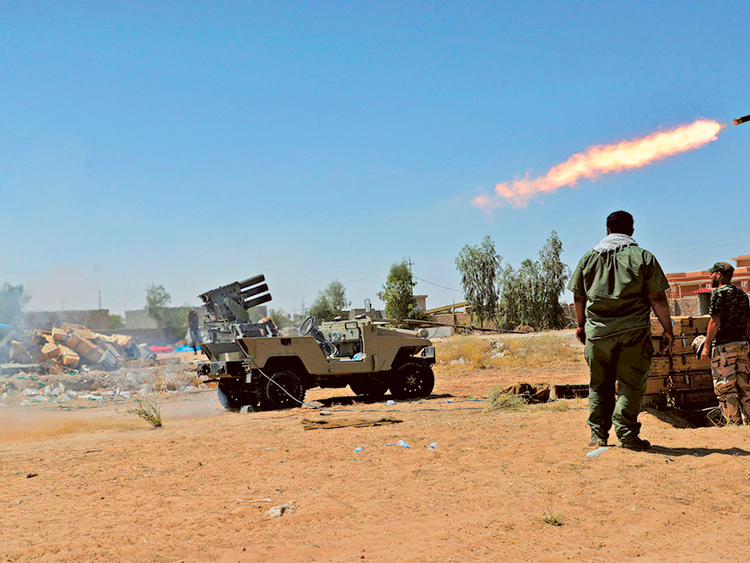Washington: The second-in-command of Daesh has been killed in a US air strike in northern Iraq, the White House said Friday.
The National Security Council identified the slain militant as Fadhil Ahmad Al Hayali, also known as Haji Mutaz, and said he was Daesh leader Abu Bakr Al Baghdadi’s senior deputy.
This is not the first time that US officials have announced Hayali’s death.
In December, US defense officials, speaking to reporters on condition of anonymity, said he was one of several senior figures killed in coalition strikes, giving another of his pseudonyms, Abu Muslim Al Turkmani.
But US forces now say they were able to kill him, along with an Daesh “media operative” known as Abu Abdullah, on August 18 in a strike on a vehicle near the city of Mosul.
The White House described Hayali as a member of the Daesh’s ruling council, and “a primary coordinator for moving large amounts of weapons, explosives, vehicles and people between Iraq and Syria”.
“He supported Daesh operations in both countries and was in charge of Daesh operations in Iraq, where he was instrumental in planning operations over the past two years, including the Daesh offensive in Mosul in June 2014,” it said, using another name for Daesh.
Like many senior Iraqi militants, before joining Daesh, Hayali had been a member of Al Qaida’s Iraqi faction.
He was reportedly a former Iraqi officer from the era of Saddam Hussain.
Daesh terrorists launched a devastating offensive in Iraq in June 2014.
Beginning in Mosul, the country’s second city and capital of Nineveh province, they swept security forces aside and eventually overran around a third of the country.
A parliamentary inquiry said this week that Iraqi officials had disastrously mismanaged the Mosul crisis, ignoring ample warnings of an impending attack.
Officials said earlier this month that more than 2,000 people had been executed in and around the city since the terrorists took it over, accused by the militants of “promoting ideas that distort Islam.”
Their names were posted on a list compiled by Daesh along with an order for health ministry staff to deliver death certificates. The names included policemen, former army officers, local officials, journalists, doctors and rights activists.
The Iraqi army, which the United States spent billions of dollars to train and equip, performed dismally in the early days of the Daesh offensive.
Al Baghdad’s forces have since regained significant ground north of the capital from Daesh, but Mosul remains under terrorist control, as does much of western Iraq.
The group also holds significant territory inside Syria, and has drawn in thousands of foreign recruits, including from Europe and the United States.












